Lifestyle
THE PHANTOM BILLIONAIRE: Faryd Sheikh’s Strategic Ascent from Shadows to State House Inner Circle
Sheikh and his business partner Jabir Abdul Nassir Al-Kandy have secured a combined 41.17 percent stake in Pesa Print, positioning them for the Sh45 billion National Transport and Safety Authority smart driving license contract spanning 21 years.
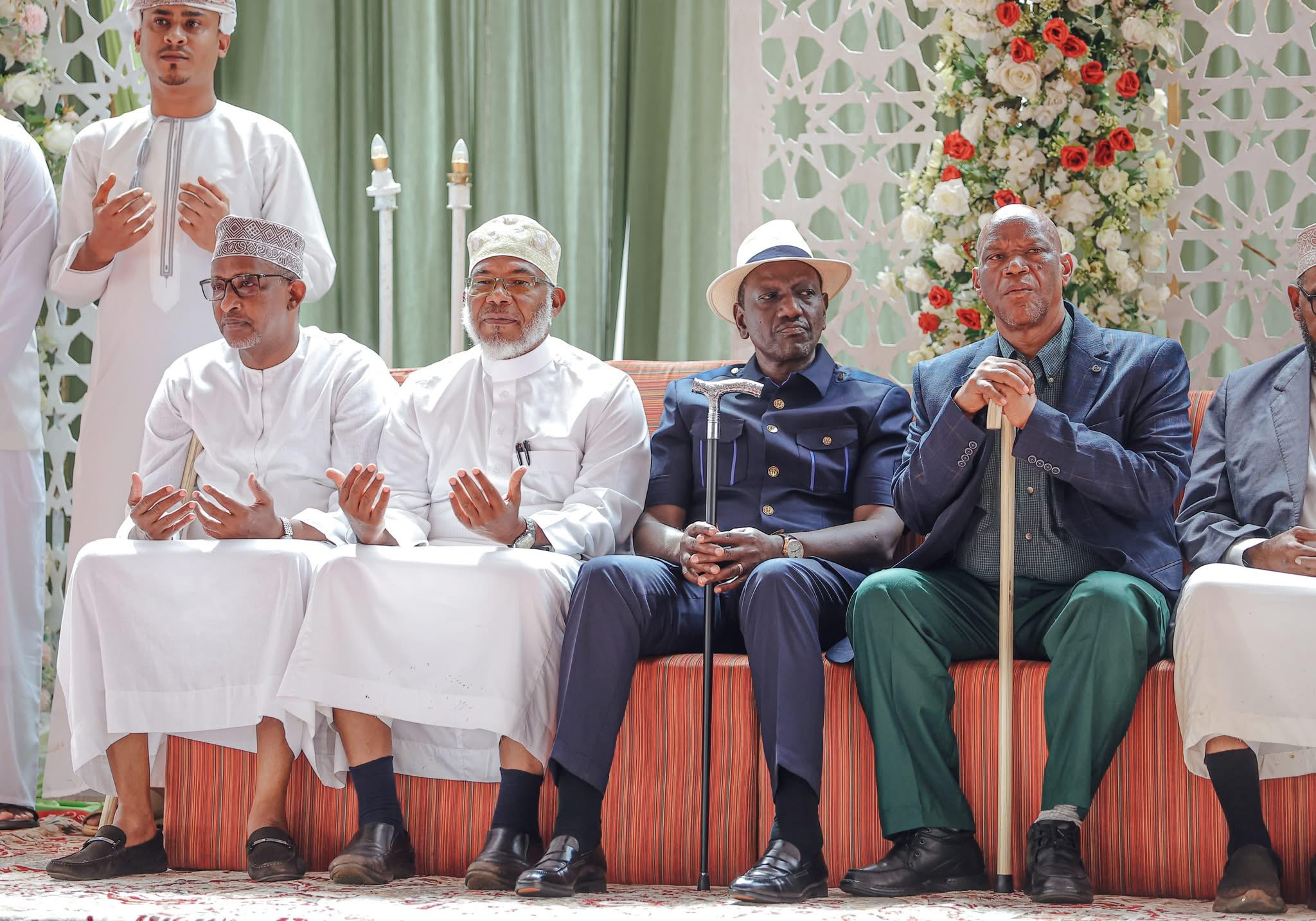
In Kenya’s complex web of business and political power, few figures operate with the calculated precision of Faryd Abdulrazak Sheikh. While most tycoons court publicity and flaunt their wealth, Sheikh has perfected the art of influence from behind the curtain emerging only when billion-shilling government contracts are at stake.
This is not the story of overnight success or accidental fortune.
It’s the methodical dissection of how one businessman has transformed strategic anonymity into perhaps the most effective government contracting operation in modern Kenya, positioning himself at the nexus of political power and public procurement with surgical precision.
THE MASTER OF STRATEGIC INVISIBILITY
For years, Sheikh operated in Kenya’s business shadows building relationships, establishing companies, and positioning assets while avoiding the spotlight that typically follows major wealth accumulation.
Unlike his contemporaries who built empires through flashy acquisitions and media attention, Sheikh constructed his influence network through careful relationship cultivation and strategic partnership selection.
This approach has paid extraordinary dividends. Today, Sheikh’s fingerprints appear on government contracts spanning transport, agriculture, energy, and hospitality sectors yet many Kenyans have never heard his name.
Such invisibility in a country where business success often courts celebrity status suggests deliberate strategy rather than coincidental discretion.
The effectiveness of this shadow approach became clear when investigations revealed the breadth of his government contracting portfolio.
Sheikh and his business partner Jabir Abdul Nassir Al-Kandy have secured a combined 41.17 percent stake in Pesa Print, positioning them for the Sh45 billion National Transport and Safety Authority smart driving license contract spanning 21 years.
THE PRESIDENTIAL CONNECTION: BUSINESS PARTNERSHIP DISGUISED AS FRIENDSHIP
The relationship between Sheikh and President William Ruto extends far beyond casual friendship into joint business ventures that blur the lines between personal relationships and commercial interests.
Sheikh is linked to the Sh600 million Mombasa Dolphin Resort in Shanzu, which former Interior Cabinet Secretary Fred Matiang’i listed among properties associated with then-Deputy President Ruto and accorded round-the-clock police protection .
This arrangement is particularly revealing. Kenyan taxpayers were effectively subsidizing security for a private commercial venture jointly owned by Sheikh and the presidential family.
The hotel wasn’t just a business investment, it was a statement about the intertwining of political power and private wealth.
The depth of their relationship was publicly displayed when President Ruto personally attended Sheikh’s son’s wedding in May 2023.
Health Cabinet Secretary Aden Duale accompanied the President, posting on social media about the honor of attending with “our dear friend Faryd Abdulrazak Sheikh”.
Such personal attention from a sitting President to a businessman’s family celebration signals relationships that extend far beyond ordinary political courtesies.
THE NTSA COUP: PRECISION TIMING AND STRATEGIC POSITIONING
The National Transport and Safety Authority tender represents Sheikh’s most sophisticated procurement positioning to date.
The timing of his corporate movements reveals either extraordinary foresight or access to privileged information that allowed perfect positioning for this multibillion-shilling opportunity.
Company registry documents show that Sheikh and Al-Kandy made their entry through Simbabanc Investments and Cropharmony Africa, companies registered in August and October 2023 respectively – just weeks after the National Treasury approved the project’s feasibility study in July 2023.
The sequence raises questions about information access and decision-making processes within government.
Normal businesses typically spend months or years developing capabilities before positioning for major contracts.
Sheikh’s entities were incorporated and positioned for this specific opportunity within weeks of government approval, suggesting either remarkable prescience or insider coordination.
This NTSA deal isn’t just another contract – it’s a 21-year monopoly that will generate revenue from every Kenyan driver seeking license services.
The strategic value extends beyond immediate profit to include decades of guaranteed government business with built-in inflation adjustments and service expansion opportunities.
THE SUGAR STRATEGY: SECTORAL DOMINATION THROUGH POLITICAL ALLIANCES
Sheikh’s expansion into Kenya’s politically sensitive sugar industry demonstrates sophisticated understanding of how government-dependent sectors operate in Kenya.
Rather than attempting standalone entry, he’s aligned with established political families who understand agricultural policy dynamics and subsidy systems.
His partnerships with the families of Kericho Senator Aaron Cheruiyot and Kipchimchim Supermarket founder Samuel Kipsoi Kipketer Ngetich for the Tinderet Sugar Factory in Nandi and Soit Sugar Factory in Narok represent strategic political insurance.
These alliances provide local political protection, community acceptance, and insider knowledge of regulatory processes that could make or break sugar ventures.
The sugar industry in Kenya has historically rewarded political connections through import duty protection, government bailouts, and preferential pricing arrangements. Sheikh’s entry into this sector suggests confidence in accessing these traditional benefits through his political alliance strategy.
THE POWER SECTOR GAMBIT: Diversifying Through Strategic Partnerships
Sheikh’s involvement in the Kenya Power contract through Kreative Concrete Products, his partnership with a healthcare magnate, reveals his expansion strategy across essential service sectors.
The Sh113 million electrical infrastructure contract represents diversification beyond his established transport and agriculture interests.
This partnership model – aligning with sector-specific entrepreneurs while providing political connections and capital appears to be Sheikh’s preferred approach to new markets.
Rather than developing in-house expertise, he leverages partnerships that combine technical capability with his political access and financing capacity.
The power sector entry is particularly strategic given Kenya’s ongoing electrical infrastructure expansion and the government’s emphasis on energy access improvement.
Positioning in this sector provides long-term revenue potential as national grid expansion continues.
THE PROXY NETWORK: Corporate Structure as Competitive Advantage
Investigation reveals Sheikh operates through a sophisticated network of corporate entities that allows multiple simultaneous government contract pursuits while maintaining competitive appearances.
His registered address serves as headquarters for various companies that can bid independently while ultimately serving unified strategic objectives.
This structure provides several advantages: circumventing single-entity contract limits, creating appearance of competitive bidding processes, and offering plausible deniability when questions arise about market concentration.
The sophistication suggests deep understanding of procurement regulations and their potential circumvention.
The proxy approach also facilitates risk distribution across multiple entities while concentrating decision-making authority.
Should any individual company face regulatory challenges, others can continue operations while maintaining overall network coherence.
THE INTERNATIONAL DIMENSION: Offshore Complexity as Strategic Tool
Sheikh’s business operations extend beyond Kenya through international partnerships and offshore arrangements that add complexity to regulatory oversight.
These structures potentially facilitate capital flows, tax optimization, and ownership obscuration that provide competitive advantages over purely domestic competitors.
The involvement of UAE-registered entities in his network suggests sophisticated financial engineering designed to maximize flexibility while minimizing transparency requirements.
Such arrangements are common among politically connected businesspeople seeking to optimize their global commercial positioning.
THE REGULATORY ENVIRONMENT: Operating Within System Limitations
Sheikh’s success occurs within Kenya’s existing regulatory framework, exploiting gaps and limitations rather than operating outside legal boundaries.
His corporate structures, partnership arrangements, and contract positioning appear to comply with technical requirements while potentially undermining competitive intent of procurement regulations.
This approach – working within system limitations while potentially contradicting system objectives, represents sophisticated regulatory arbitrage.
Rather than challenging rules directly, Sheikh appears to leverage their inadequacies and enforcement limitations.
The regulatory response to his activities will test Kenya’s institutional capacity to ensure competitive procurement processes.
His success in securing multiple major contracts across sectors raises questions about whether current regulations adequately protect competitive market dynamics.
THE ECONOMIC IMPLICATIONS: Market Concentration and Competition Effects
Sheikh’s expanding portfolio of government contracts across multiple sectors raises broader questions about market concentration and competitive dynamics in Kenya’s government-dependent industries.
When single networks secure dominant positions across transport, energy, agriculture, and other essential sectors, the effects extend beyond individual contract values.
Such concentration can lead to reduced innovation, inflated pricing, and decreased service quality as competitive pressures diminish.
The long-term contracts Sheikh has secured provide revenue guarantees that reduce incentives for efficiency improvements and customer service excellence.
For other businesses seeking government contracts, Sheikh’s success demonstrates the premium placed on political connections over technical capabilities or competitive pricing.
This dynamic can discourage legitimate business investment in sectors where political access appears more valuable than operational excellence.
THE INSTITUTIONAL TEST: Governance Systems Under Pressure
Sheikh’s operations present a significant test for Kenya’s governance institutions and their ability to ensure competitive, transparent procurement processes.
The concentration of contracts within his network raises questions about whether existing oversight mechanisms adequately protect public interests.
The Ethics and Anti-Corruption Commission, Public Procurement Regulatory Authority, and sector-specific regulators face the challenge of ensuring fair competition when politically connected networks operate within technical legal requirements while potentially undermining competitive market objectives.
The institutional response to Sheikh’s activities will indicate whether Kenya’s governance systems can evolve to address sophisticated regulatory arbitrage or will continue enabling systematic advantages for politically connected business networks.
THE STRATEGIC POSITIONING: Building Sustainable Competitive Advantages
Sheikh’s approach represents more than opportunistic contract seeking – it appears to be systematic positioning for sustainable competitive advantages across multiple sectors.
His political relationships, corporate structures, and sector diversification create mutually reinforcing competitive advantages that become increasingly difficult for competitors to challenge.
The Presidential friendship provides political protection and access, the corporate network enables regulatory arbitrage and risk distribution, and the sector diversification creates multiple revenue streams with different risk profiles.
This integrated approach builds sustainable competitive moats around his business empire.
Such positioning suggests long-term strategic thinking rather than short-term profit maximization. Sheikh appears to be building infrastructure for decades of government contracting success rather than pursuing individual opportunities opportunistically.
THE DEMOCRATIC IMPLICATIONS: Private Interests and Public Policy
The intersection of Sheikh’s business interests with government policy raises fundamental questions about democratic governance and public policy formation.
When major government contractors maintain such close relationships with political leadership, the independence of policy decisions becomes questionable.
Sheikh’s success across multiple sectors provides him significant influence over government policies affecting transport, agriculture, energy, and other areas where his companies operate.
This influence potential raises questions about whether public policies serve broader national interests or benefit specific private networks.
The challenge for Kenya’s democratic institutions is ensuring that business success doesn’t translate into policy capture that serves private interests at public expense.
Sheikh’s growing influence will test institutional capacity to maintain independence between government policy and private business interests.
THE ACCOUNTABILITY QUESTION: Transparency and Public Oversight
Sheikh’s operational approach – strategic anonymity, complex corporate structures, and international partnerships – creates significant challenges for public accountability and oversight.
Traditional transparency mechanisms struggle to address sophisticated networks that operate within legal requirements while potentially undermining public policy objectives.
The media, civil society, and opposition political parties face difficulties investigating and exposing networks that operate through legal corporate structures and maintain arms-length political relationships.
Sheikh’s approach appears designed to avoid the direct exposure that typically enables public accountability.
This dynamic raises questions about whether Kenya’s accountability systems can adapt to address modern forms of influence and ensure that business success serves broader public interests rather than narrow private objectives.
THE FUTURE IMPLICATIONS: Precedent and System Evolution
Sheikh’s success establishes precedents for how business networks can leverage political relationships to secure sustained competitive advantages.
His model – strategic anonymity, political relationship cultivation, regulatory arbitrage, and sector diversification – provides a template for other ambitious entrepreneurs.
The proliferation of similar networks could further concentrate government contracting within politically connected circles while reducing opportunities for businesses that lack comparable political access.
This dynamic could systematically disadvantage competitive market development in favor of relationship-dependent business models.
The long-term implications extend beyond individual business success to questions about Kenya’s economic development model and its compatibility with competitive market principles.
Sheikh’s approach represents a test case for whether political connections or competitive merit will determine business success in critical sectors.
THE RECLUSIVE STRATEGIST EMERGES
Faryd Abdulrazak Sheikh represents a new archetype in Kenyan business: the strategic phantom who builds influence networks while avoiding public attention.
His emergence from the shadows to dominate government contracting across multiple sectors reveals sophisticated understanding of political relationship management and regulatory system navigation.
Whether Sheikh’s approach represents legitimate business strategy or systematic advantage creation at public expense remains an open question.
What’s undeniable is his effectiveness in translating political access into commercial success across sectors essential to Kenya’s economic development.
His story continues unfolding as new contracts emerge and his influence network expands.
The ultimate measure of his impact will be whether his success contributes to competitive market development or further entrenches advantages for politically connected business networks at the expense of broader economic competition and public service quality.
The phantom has stepped into the light, revealing an empire built on strategic relationships and systematic positioning.
Whether Kenya’s institutions can ensure this empire serves public interests as well as private ones will determine much about the country’s economic and political future.
Kenya Insights allows guest blogging, if you want to be published on Kenya’s most authoritative and accurate blog, have an expose, news TIPS, story angles, human interest stories, drop us an email on [email protected] or via Telegram
-

 Business7 days ago
Business7 days agoKakuzi Investors Face Massive Loss as Land Commission Drops Bombshell Order to Surrender Quarter of Productive Estate
-
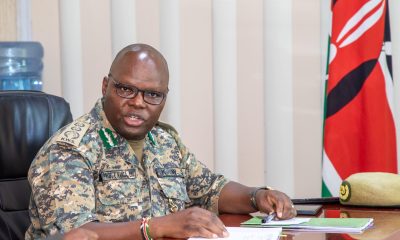
 Investigations1 week ago
Investigations1 week agoINSIDER LEAK REVEALS ROT AT KWS TOP EXECUTIVES
-

 Investigations5 days ago
Investigations5 days agoCNN Reveals Massive Killings, Secret Graves In Tanzania and Coverup By the Govt
-
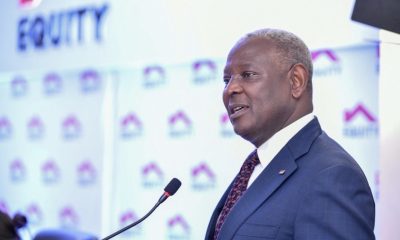
 Business1 week ago
Business1 week agoBANKS BETRAYAL: How Equity Bank Allegedly Helped Thieves Loot Sh10 Million From Family’s Savings in Lightning Fast Court Scam
-

 Business1 day ago
Business1 day agoConstruction Of Stalled Yaya Center Block Resumes After More Than 3 Decades and The Concrete Story Behind It
-
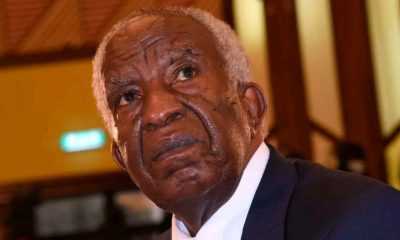
 News1 week ago
News1 week agoEXPOSED: How Tycoon Munga, State Officials, Chinese Firm Stalled A Sh3.9 Trillion Coal Treasure In Kitui
-

 News1 week ago
News1 week agoEx-Boyfriend Withdraws Explosive Petition to Remove DPP After Criminal Case Against Capital FM Boss Resurfaces
-
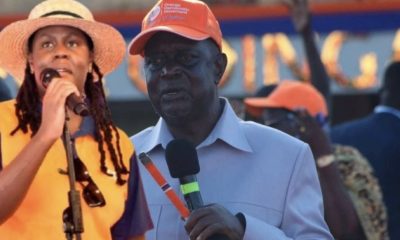
 Politics6 days ago
Politics6 days agoI Had Warned Raila Of Possible Fallout In The Odinga Family After His Death, Oburu Says





















